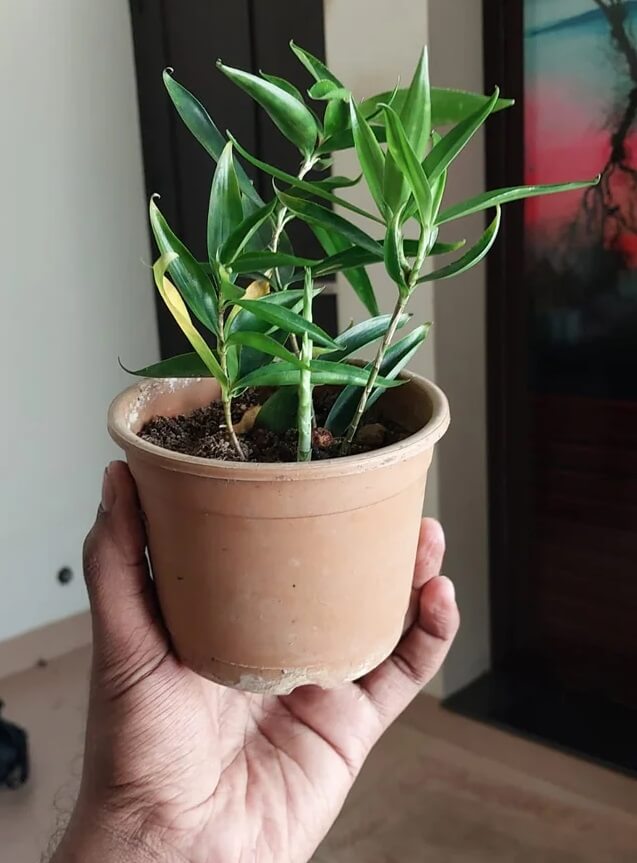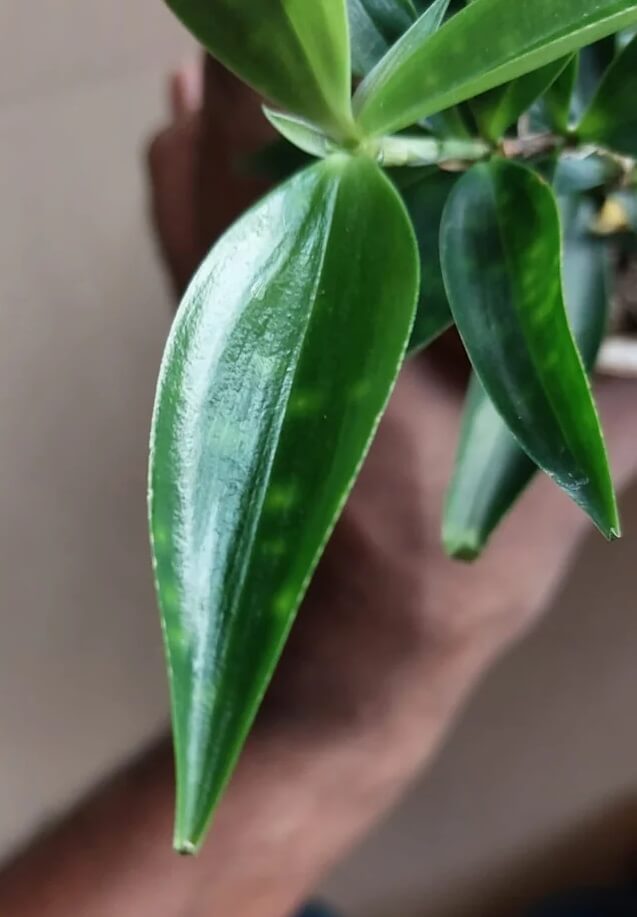A cry for help over a drooping plant sparked an important conversation.
A Redditor recently shared a photo of a small houseplant with yellow, curling leaves. "Please help," the Redditor begged the r/PlantClinic community. "I got her as a gift and she is not doing well. The leaves are yellowing and curling up."
The user followed up with some helpful care details, demonstrating that they want to nourish their gift: "Indirect sunlight from my window which is 8-9 feet away. I water her when the soil gets dry and the pot [has] proper drainage."
By the time the photo went live, the plant had been living with the Redditor for about a week. According to the Redditor, the leaves began to yellow on the second day.


Another Reddit user identified the plant as leptomorph bamboo, which is invasive in the U.S., and broke the news no plant owner wants to hear:
"That looks like a type of bamboo you DO NOT want to plant in your yard, in the ground... unless you want to battle what could become an invasive, hard to remove species," the Redditor commented.
"The thing is though, it will do best living outdoors. If it's not parked directly next to an unobstructed window for indoor cultivation, your plant is going to struggle."
Leptomorph bamboo spreads, or "runs," rapidly. Their perennial stems, which run horizontally underground, can grow indefinitely unless damaged at the tip. Even a small colony of leptomorph bamboo can turn into an entire forest.
Pachymorph bamboo, which is slow-growing and considered noninvasive, is a much more appropriate addition to a native plant lawn.
If you realize the bamboo you've received to start your native plant lawn is leptomorphic rather than pachymorphic, hope isn't lost. There are other eco-friendly, low-maintenance lawn replacement options you can pursue instead, including clover, buffalo grass, and xeriscaping.
Even a partial lawn replacement can allow you to save money and time on lawn maintenance, conserve water and lower water bills, and create a healthier ecosystem for pollinators (which ultimately benefits humans, as pollinators protect our food supply). When in doubt, subreddits like r/PlantClinic are available to help you get started.
When rookie gardeners' good intentions wilt, more seasoned plant lovers must empower them to search for solutions rather than shame them. Just like when cultivating any living thing, mistakes will happen. Don't sweat it, and keep going.
Join our free newsletter for easy tips to save more, waste less, and help yourself while helping the planet.









